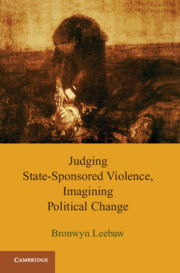Book contents
- Frontmatter
- Contents
- Acknowledgments
- 1 Introduction: Transitional Justice and the “Gray Zone”
- 2 Human Rights Legalism and the Legacy of Nuremberg
- 3 A Different Kind of Justice: South Africa's Alternative to Legalism
- 4 Political Judgment and Transitional Justice: Actors and Spectators
- 5 Rethinking Restorative Justice
- 6 Remembering Resistance
- 7 Conclusion: The Shadows of the Past
- Select Bibliography
- Index
4 - Political Judgment and Transitional Justice: Actors and Spectators
Published online by Cambridge University Press: 05 June 2012
- Frontmatter
- Contents
- Acknowledgments
- 1 Introduction: Transitional Justice and the “Gray Zone”
- 2 Human Rights Legalism and the Legacy of Nuremberg
- 3 A Different Kind of Justice: South Africa's Alternative to Legalism
- 4 Political Judgment and Transitional Justice: Actors and Spectators
- 5 Rethinking Restorative Justice
- 6 Remembering Resistance
- 7 Conclusion: The Shadows of the Past
- Select Bibliography
- Index
Summary
Hannah Arendt was bitterly attacked for her controversial coverage of the Eichmann trial and even accused of betraying “a conscious desire to support Eichmann's defense,” yet she is now treated as a significant authority in theoretical debates on transitional justice. Like many contemporary human rights advocates, Arendt supported the development of international criminal justice institutions and argued that success or failure in dealing with crimes against humanity “can only lie in the extent to which this dealing may serve as a valid precedent on the road to international law.” At the same time, Arendt's critique of the Eichmann trial and her writings on forgiveness have influenced scholarship addressing the limitations of legalism as a response to systematic atrocities. South African leaders and activists associated with the TRC developed Arendt's argument that in contrast with revenge, forgiveness “does not merely re-act, but acts anew.” A number of legal and political theorists have argued that Arendt's reflections on forgiveness provide important insights for contemporary responses to political violence.
Missing from these debates has been serious attention to one of Arendt's central theoretical concerns, which was to reconsider the role of political judgment in the aftermath of twentieth-century atrocities. Transitional justice institutions aspire to judge systematic political violence and advance political change, but their investigations are typically framed as apolitical responses to the deeds and experiences of individual victims and perpetrators.
- Type
- Chapter
- Information
- Judging State-Sponsored Violence, Imagining Political Change , pp. 91 - 118Publisher: Cambridge University PressPrint publication year: 2011



